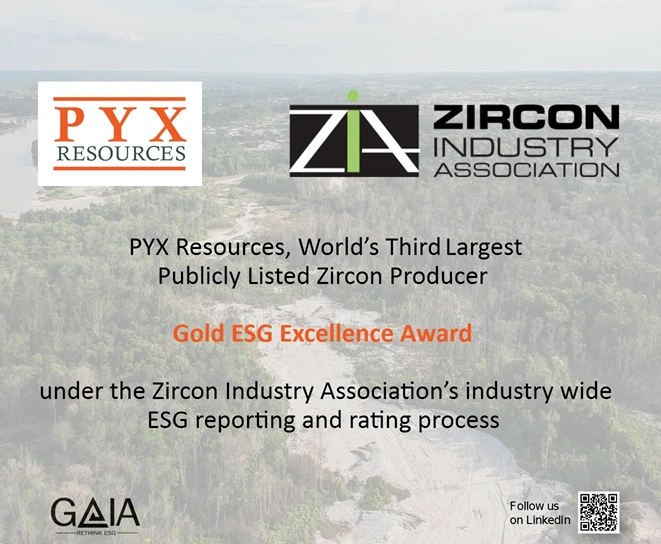Sustainable Mining – Dialogue with Elevate Uranium Ltd
Hong Kong, May 24, 2024
In our recent meeting with Elevate Uranium, we engaged in a comprehensive discussion about their Environmental, Social, and Governance (ESG) practices. The key points covered include renewable energy systems, board independence, human capital management, onsite safety, workforce sourcing, and technological advancements.
Reinforce the End of ‘E’ –Energy Generation Systems
In the meeting, Murray, CEO of Elevate Uranium, also agreed on the topic we discussed with IGO Limited and our conclusion published in our recent article titled The End of the ‘E’ (read this article), and confirmed the high costs associated with implementing multiple energy generation systems to support renewable energy for better ‘E’. He pointed out that such multi-energy supply system requires substantial capital and would only yield significant benefits over a long-term period, typically around 20 years, this long-term perspective underscores the substantial capital investment required for sustainable energy solutions and will screen out the company with mining project at the end of the mine life.
Is Board Independence Always Beneficial to the Company?
The conversation around board independence was insightful.
Exchanges have regulations regarding the percentage of independent board members. However, Murray highlighted the complexity of assuming that an independent board is inherently better. He suggested that having board members with a financial stake in the company can align their interests with those of the shareholders. The importance of independence is not absolute; it should depend on the level of engagement and varies case by case.
For example, the company’s size plays a role in determining the relevance of board independence. In smaller companies, having board members with a stake in the company may mean something, but larger companies like BHP may not have any impact. Murray stated that he prefers a board with a financial stake in the company, especially in smaller firms, as it aligns the board’s interests with those of the shareholders, encouraging efforts to increase the company performance and share price. He believes that boards without such stakes may make decisions based on other factors and could be more susceptible to outside influences.
Small Size Company Struggled in Human Capital Management
Human capital emerged as a critical component of ESG, with regards to the ‘Social’ aspect. From our understanding, as detailed in our article “The End of the ‘E’,” the most significant impact a company can make is through human capital management, a crucial aspect of the Social component of ESG. People are the most vital resource a company has. However, many companies, particularly Junior explorers have limited control over their contractors. They often rely on contractors and have little influence over them, often making decisions based on cost rather than effective workforce management, which can lead to irresponsible behaviours, such as environmental damage.
What’s more, Murray also highlighted that any irresponsible actions by contractors, such as environmental damage from uncleaned drilling sites, are not reflected in the mining company’s results. While poor performance by a company may lead to negative consequences, exceptional well performance rarely results in positive recognition. This discrepancy can encourage negative behaviours within the industry.
Onsite Safety
Ensuring onsite safety is crucial for all mining companies. Murray mentioned how he ensures the safety of the mine site without staying there, he regularly visits the mine sites, 3-4 times a year, to assess and confirm that operations are managed safely. He also brings investors to these sites to gather their feedback. Positive feedback from visitors acts as a reassurance of safety standards, while any ‘neutral’ feedback will be a sign of problem.
Workforce Sourcing
Elevate Uranium has a balanced approach to sourcing its workforce while try to increase the local employment. For technical roles like geologists, they hire internally, while mining labour is sourced locally with the help of contractors. This strategy not only brings in qualified experts but also supports local employment, enhancing their social responsibility profile.
Technological Advancements
Elevate Uranium has made significant strides in technology to improve cost efficiency and reduce environmental impact. Their new process technology eliminates the need for drilling and blasting, thus reducing safety risks and environmental damage. Additionally, they ensure immediate waste cleanup to avoid dust issues and refrain from using harmful chemicals. These innovations can lead to a 50% reduction in capital costs, showcasing their high cost efficiency process and commitment to sustainability.
The meeting with Elevate Uranium provided valuable insights into their ESG practices and their opinions on board independence, human capital management, workforce safety, and technological innovations. These direct dialogues reinforce the importance of thorough evaluations to ensure that capital is invested in sustainable mining businesses, which should generate higher returns over long-run.
About Elevate Uranium
Incorporated in 1978 and headquartered in West Perth, Australia, Elevate Uranium engages in the exploration and evaluation of uranium deposits in Namibia and Australia. The company’s projects include the Koppies, Hirabeb, Capri, Marenica, and Namib IV in Namibia. It also holds 100% interests in the Angela, Thatcher Soak, Oobagooma, and Minerva project areas, as well as the Bigrlyi, Malawiri, Walbiri, and Areva joint ventures in Australia. The company was formerly known as Marenica Energy Limited and changed its name to Elevate Uranium Ltd in May 2021.
Company outlook: With a plan spanning 4-5 years for exploration and resource upgrades, Elevate Uranium aims to move into construction and production.





